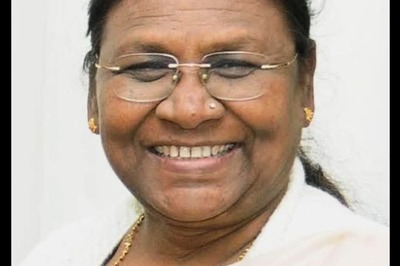
views
Islamabad: The Pakistani military on Thursday said it was "under no pressure" to carry out anti-militancy operations in the restive North Waziristan even as it emphasised that US intelligence agencies will not be allowed to conduct any "independent operation" within the country.
The announcement was made following a meeting of the Corps Commanders chaired by Army Chief Gen Ashfaq Parvez Kayani.
The meeting reviewed the internal security situation in the wake of the American raid that killed al-Qaeda leader Osama bin Laden as well as military-to-military relations with the US.
Discussing news about military operations in North Waziristan Agency, Kayani informed the commanders that the army was "following a well thought out campaign plan and is under no pressure to carry out operations at a particular time".
"Future operations, as and when undertaken, will be with political consensus," he added.
Kayani's announcement came against the backdrop of growing US pressure for Pakistan to launch an operation against groups like the Haqqani network in North Waziristan that launch cross-border attacks on foreign troops in Afghanistan.
The army chief called on the people of North Waziristan to "evict all foreigners from their soil and take charge of their land and destiny once again".
He said "it was wrong, in principle, to allow others to use our land for fighting their battles. This must not be allowed."
The army in North Waziristan is "committed to supporting the people...in this effort", Kayani said.
Pakistani commanders were informed about the "extent of intelligence cooperation with the US" and told that it had been decided "to share intelligence strictly on the basis of reciprocity and complete transparency", said a statement issued by the military.
"It has been clearly put across to US intelligence officials that no intelligence agency can be allowed to carry out independent operation on our soil," the statement said.
The Pakistan Army has "drastically cut down the strength of US troops stationed in Pakistan", it noted. The army had "never accepted any training assistance from the US except for training on the newly inducted weapons and some training assistance for the Frontier Corps" and even this "has ceased now", the statement said.
The army had announced shortly after the May 2 raid by US Navy Seals that killed Bin Laden that it wanted the Americans to reduce their military presence in the country to the "minimum essential".
Referring to US drone strikes, the army said it had "repeatedly conveyed to all concerned that these are not acceptable under any circumstances".
There is "no room for ambiguity" and the government is "making necessary efforts in this direction", the statement said.
Kayani said the military-to-military relationship with the US "has to be viewed within the larger ambit of bilateral relations between the two countries".
It also "had to be assessed afresh in the backdrop of" the raid against bin Laden, the "dictates of the joint parliamentary resolution passed on May 14" on the Abbottabad incident and the aspirations of the people of Pakistan, he said.
"Economic rather than military aid was more essential for Pakistan," the top general underlined.
In line with the position taken in the Pakistan-US Strategic Dialogue in March, the army recommended to the government that US funds meant for military assistance should be "diverted towards economic aid"...which can be used for reducing the burden on the common man", Kayani said.
The commanders voiced concern on the "blowback of the Abbottabad incident which has resulted in an upsurge in terrorism and consequent loss of innocent lives".
All law enforcement agencies "need to be more focused and proactive" and the army will extend all possible support, the commanders said.
The commanders noted with regret that despite the briefing given by the military to the joint session of parliament and decision to appoint a commission to probe the raid against bin Laden, "some quarters, because of their perceptual biases, were trying to deliberately run down the armed forces and army in particular".
This, they said, was "an effort to drive a wedge between the army, different organs of the state and more seriously, the people of Pakistan, whose support the army has always considered vital for its operations against terrorists".
Kayani said it was critical to "stand united as a nation" to confront the current challenges.
Any effort to create divisions between important institutions is not in the national interest, he said. The commanders agreed to "take cognizance of this unfortunate trend and put an end to it".
Kayani also issued a clarification about the amount of military aid provided by the US since Pakistan joined the war on terror a decade ago.
Against a total sum of USD 13 billion expected from the US under the Coalition Support Fund, only USD 8.6 billion had been received by Pakistan, the top commander said.
The government further made available only USD 1.4 billion to the army over the past ten years and a relatively smaller amount has gone to the navy and air force.
The rest, approximately USD six billion, was used by the government for "budgetary support which ultimately means the people of Pakistan", the army chief said. The commanders said Pakistan's internal situation is the "most important factor and it cannot be relegated in priority".
The army leadership "reaffirmed its resolve to continue supporting the democratic system without any preference to any particular political party".
It said it was determined to lead the fight against terror in partnership with law enforcement agencies and in line with the constitution.




















Comments
0 comment